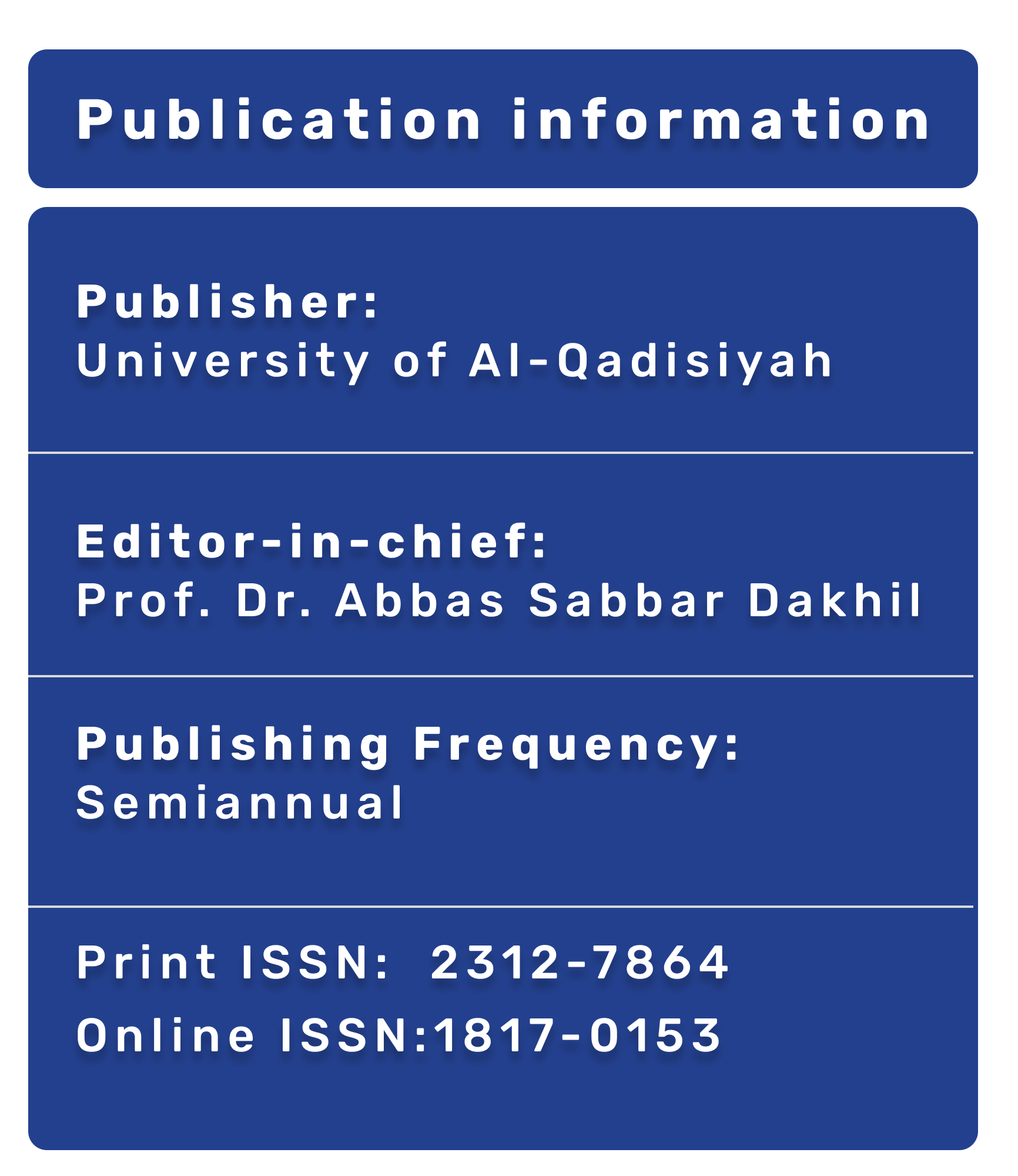Bacteroides spp. isolation from pus or peritoneal fluid in patients with perforated peptic ulcer
DOI:
https://doi.org/10.28922/qmj.2008.4.5.185-193Abstract
From October 2001 till November 2007,two hundred eighty eight patients with perforated peptic ulcer including duodenal and gastric ulcer attending Baghdad teaching hospital and Al- Diwanyia teaching hospital were subjected for surgery and samples from free peritoneal fluid to obtain specimens for determining the rate of peritoneal colonization by bacteroides spp.and the risk factors which may increase this rate by direct questionnaire to obtain preliminary guides for methods of prophylaxis against subsequent possible wound infection and systemic sepsis .Specimens was obtained using sterile syringe aspirating about 2-5 ml of pus or fluid which is air free Diagnostic confirmatory tests for Bacteroides spp. identification has been made by anaerobic culture utilizing selective complex medium like brain heart agar containing amikacin which inhibit growth of facultative anaerobes. Culture were incubated at 35- 37c in an anaerobic atmosphere containing CO2. Results showed that 48.6% of the studied patients were found to be Bacteroides culture positive . Some risk factors have been evaluated which may or not contribute to increasing the rate of Bacteroides spp. Colonization, among these ,time from onset of perforation till the time of surgery or sampling which was found to be a significant risk factor if the patient underwent surgery after 12hr from onset of perforation 72.5% . Age was individually evaluated , it has appeared that increasing age is a risk factor and become significant after 50 years of age with 83.7% of patients in this age group was colonized with Bacteroides spp. The associated other medical illness , steroids consumption and immune suppression were also evaluated in which only steroids found to be a significant risk factor with a rate approaching 80.4%. Other risk factors which has been evaluated is the preoperative use of H2 blockers or proton pump inhibitors , which found to significantly increase the rate of bacteroides isolation( 80%.).








